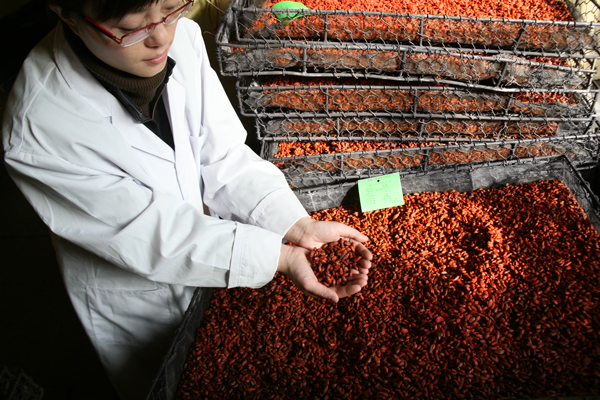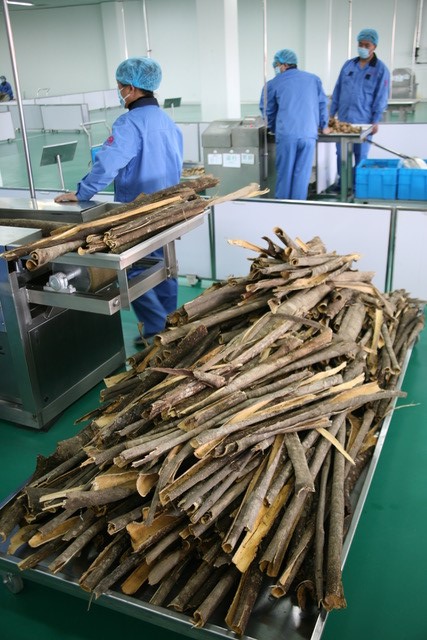Stock outs: The long and the short of why it happens
Sometimes we’re out of stock due to things we can’t control like the weather, pollution, or politics, but mostly we’re out of something because we refuse to compromise on quality, safety or ethics. While it would be easy to procure herbs from other importers or even off Alibaba when we run low, Mayway has always been committed to providing high quality at a fair price.
The myriad reasons why herbs are sometimes out of stock:

Seasonal unavailability. Our Plum Flower® herbs are unsulfured, and depending upon the time of the year we need to replenish inventory, it may not yet be harvest season. We like to process herbs ourselves, and usually receive them fresh from the fields. Processed herbs available in the marketplace tend to be sulfured or worse. Just how worse? Look for my upcoming blog on some of the unsavory practices in the herbal marketplace.
Natural Disasters. Droughts, floods, earthquakes, pests, etc. can severely impact the health and yield of crops, and whether and how much wildcrafted herbs are harvested. Also, because we often contract with small family farms, when a regional disaster strikes, we are reluctant to drop them and buy herbs from less-trusted, often lower-quality sources.
Quality Issues. As a family business ourselves, we take the quality of our herbs very personally. Carrying 400+ single herbs is a big job, and we inspect each batch thoroughly. We reject hundreds of herbs each year, for substandard quality, for having too high heavy metals or pesticide levels, for being the wrong species, etc. Each herb is inspected and tested before it’s processed or used in manufacturing, and the final product is run through over 15 tests before it leaves the factory.

Cost Issues. Keeping our products affordable is very important to us. Often due to scarcity (natural disasters, market hoarding activities) and sometimes due to popularity (China’s domestic demand, the dietary supplement world “discovers” an herb with $$$ marketable qualities) the price of herbs can skyrocket. To avoid passing on inflated prices to our customers, we will sometimes forego bringing in that herb until prices stabilize.
For example, for the last few years the price of Chong lou/Paris polyphylla rhizome has risen steadily. It has been estimated that China consumes 2000 metric tons each year. In the wild it has been harvested to endangered levels, and cultivation takes 5-7 years before it can be harvested, resulting in Chong Lou raw herb currently being over $100 per pound. This has led to us being out of stock of Bi Yan Qing Du Chong Ji, a product we last sold for $7.45 a bag. At the current Chong Lou price, it would cost at least $15.00 a bag. By the way, it’s now estimated that half the Chong Lou in the marketplace are actually Burmese, Nepalese, and Indian species being covertly substituted for less than half the price (so always good to keep in mind that you get what you pay for).
Special permits and tests. Many herbs require special processing and/or permits and tests. CITES (The Convention on the International Trade of Endangered Species Act) permits for its listed herbs can take months to get from the government. Other permits that can cause delays include Phytosanitary Certificates and Veterinary Health Permits. Some herbs require special testing to assay quality, such as Huang qi for astragalosides and calycosin glycoside, Mu dan pi for paeonol, Shan zhu yu for longanin, and Bai Shao for peoniflorin. Others for safety, such as aflatoxin testing for Xing ren, Tao ren, and Chen pi. These tests are costly, and add delays that affect not just individual herbs, but the formulas that require them.

Now imagine these reasons multiplied by an average of 12 herbs in a formula, just to make a single pill. Then multiply that by 150 formulas.
And those are just the ingredient issues. There is also a seasonal aspect for herb processing and pill, tablet, and extract manufacturing. None of our products contain preservatives. Nor are they treated with radiation or sterilizing gases. Being chock full of complex sugars and other nutrients, herbs are susceptible to bacterial, mold, and fungal growth even under the best of conditions. To keep our products safe without using preservatives, our manufacturers don’t manufacture during the height of the summer season, and for that month the focus is on deep cleaning, equipment maintenance and upgrades, and personnel training instead.
Finally, there are the logistical delays on both sides of the Pacific. China has many long holidays, such as Golden Week (celebrating the establishment of the PRC in 1946) and Chinese New Year. Everything essentially shuts down, including manufacturing, shipping, Customs inspections, etc. On the U.S. side, we don’t usually have such long holidays, but there are occasionally port worker strikes, truck driver strikes, and of course FDA inspectors on vacation, which results in our products sitting on docks or in our warehouse waiting. From the moment our shipment leaves the dock in China, ideally we’ll have it on our shelves ready to be shipped to you 6-7 weeks later, but often it takes much longer.
We are very aware that our being out of stock inconveniences you and may sometimes impact your treatment strategy. We are sincerely sorry about that. Please believe that we work very hard to keep products in stock, and to keep them at prices your patients can afford. Unfortunately, we can’t always control every aspect of the supply chain, but please know that we are doing everything we can to remedy the situation. We do our best to anticipate and forecast, and our manufacturing partners work hard too to schedule production and ensure that all raw materials are available and up to our stringent standards. Thank you for your support.

